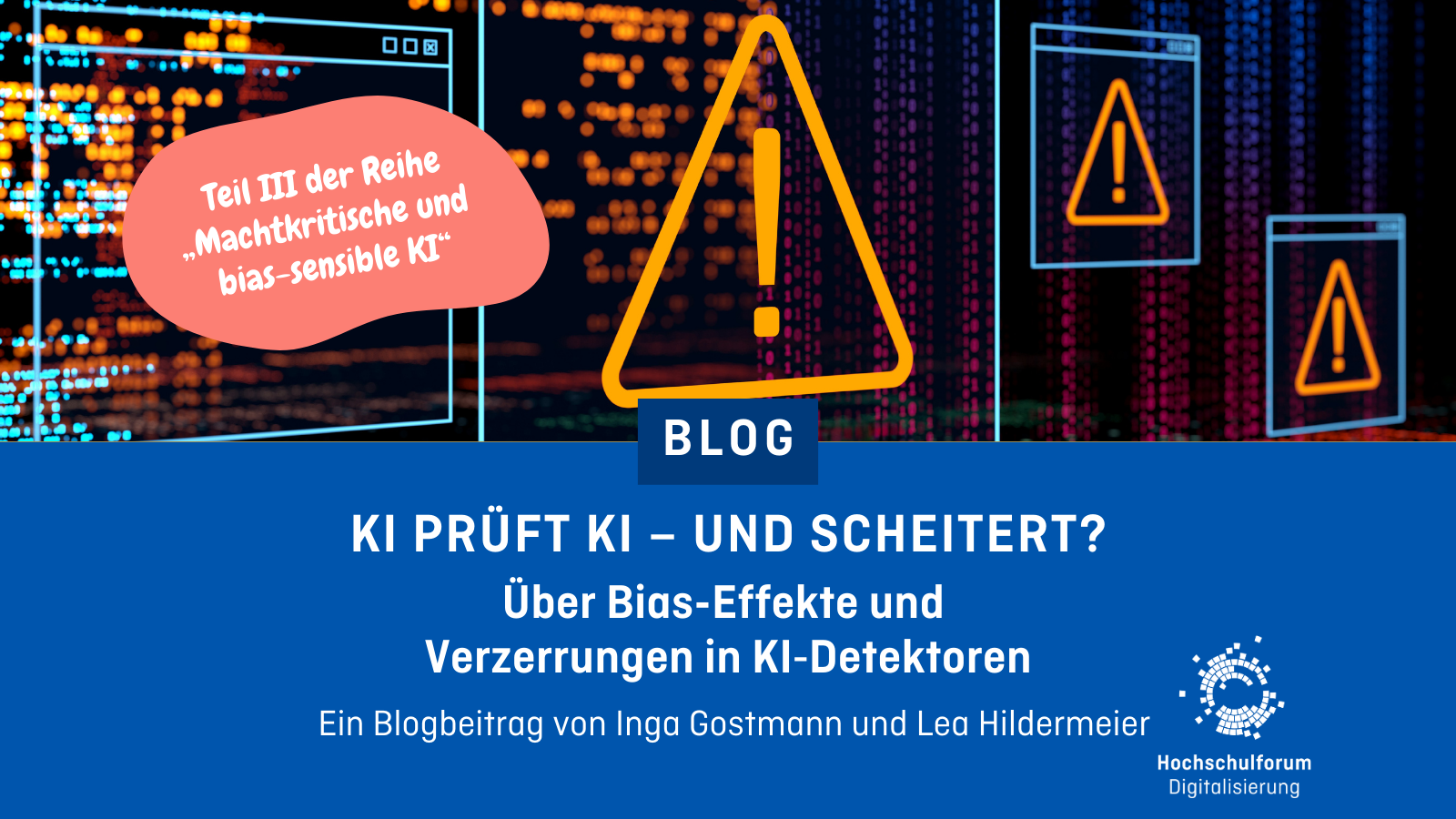Digital Changemakers: Full of Ideas and Zest for Action — Kick-Off of the New Year of the Student Future AG
Digital Changemakers: Full of Ideas and Zest for Action — Kick-Off of the New Year of the Student Future AG
08.11.19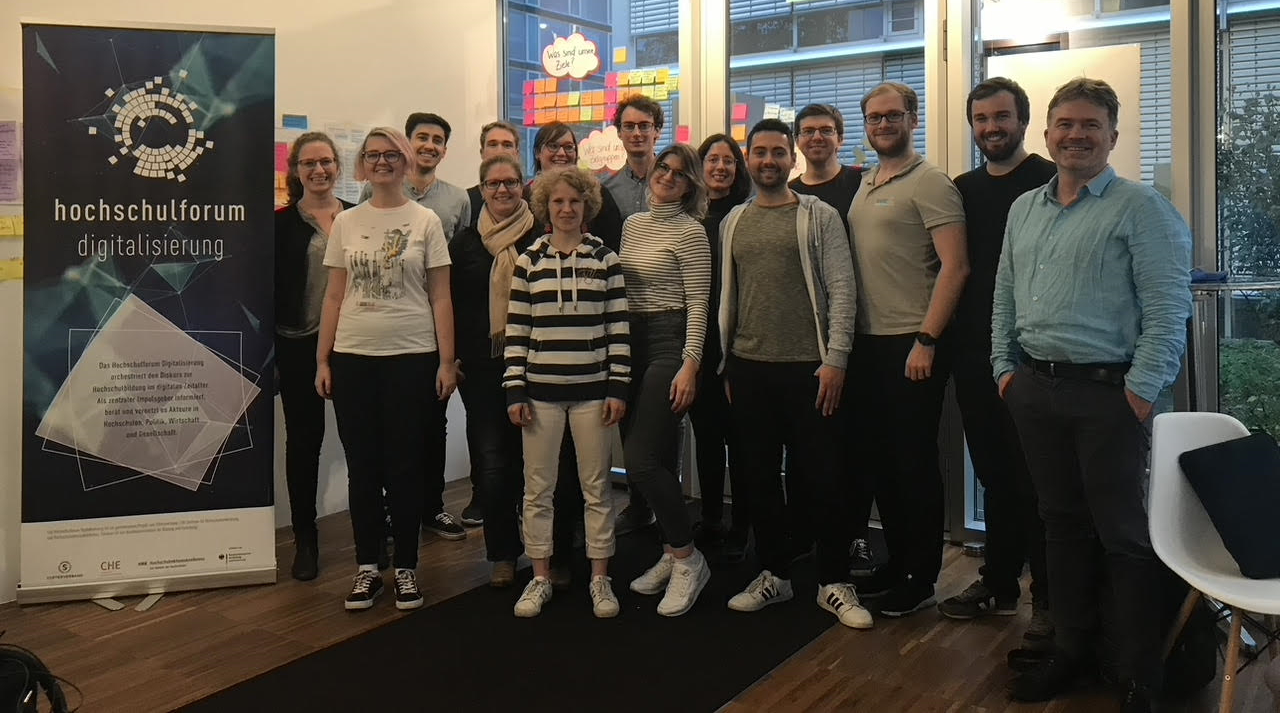
At the beginning of the new academic year, three ad-hoc working groups will again be starting in the Higher Education Forum – one of them this time again being the Studentische Zukunfts-AG “DigitalChangeMaker“. While the last year’s class of digitisation enthusiasts recently published their thesis paper on the digitisation of universities from a student perspective and was busy with the final preparations for the presentation of their results at the HFDCon in Bonn, we constituted twelve new digital changemakers at the weekend of 18 to 20 October at the Digital Hub in the federal city of Bonn. Also this year the AG is again various and in the team are represented different specialized cultures, education biographies and experiences in the honorary commitment. In the following we report what we experienced at our Kick-Off-Event and which agenda was developed for the coming year.
This article was automatically translated using DeepL Translator. Please excuse any errors.
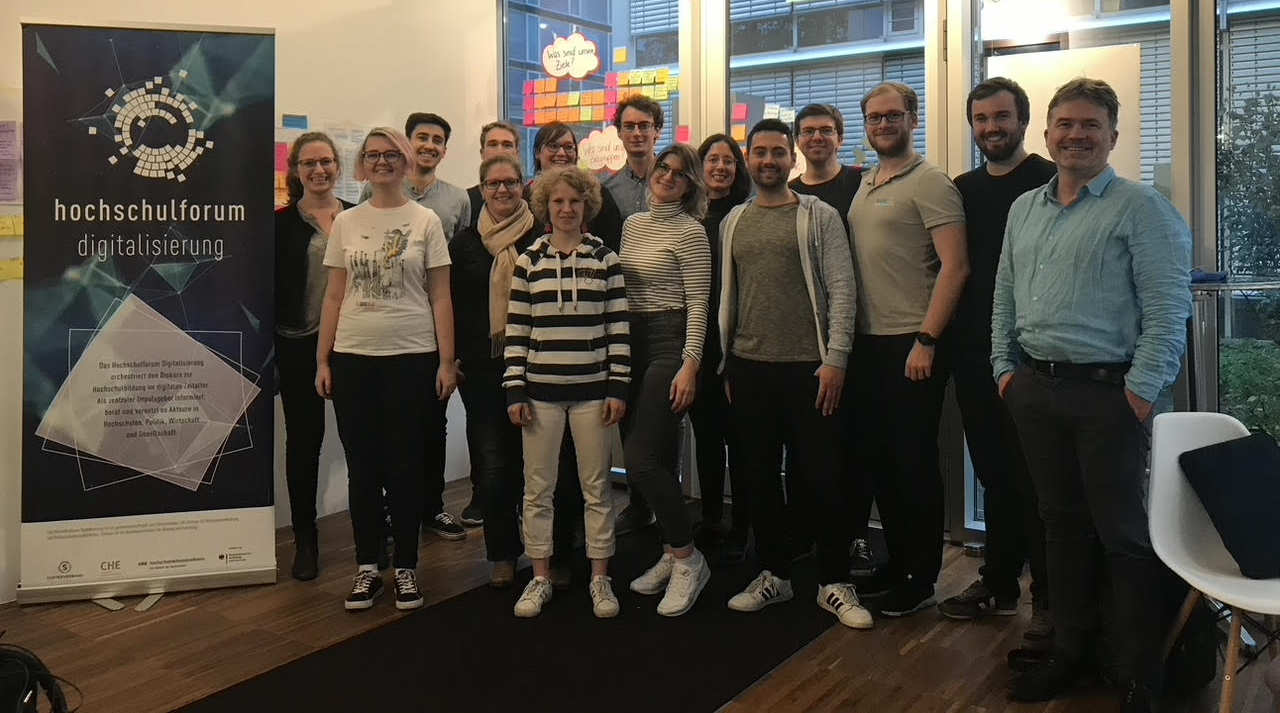
Kick-Off-Event
The event started for us on Friday evening with a joint pizza dinner in downtown Bonn. In a cosy atmosphere we could get to know each other and exchange our experiences in studies and engagement. Already there we collected many ideas for the digitalization of universities.
Recovered and stimulated by the interesting conversations of the evening before, on Saturday morning the finding of the contents of the Zukunfts-AG began. First we got to know each other. In addition it was brought up for discussion, which technical, methodical and personal authority we bring along, which university experiences were gained and in which federations and networks we bring ourselves in addition to the future AG.
The lunch break was followed by a creative and open brainstorming session on visions and possible goals. We agreed that it is important to upgrade teaching at universities and to mobilise students, teachers and staff in educational institutions to engage with digital teaching and learning. In this context, the importance of open and equal participation of all status groups in the digital transformation of higher education institutions was stressed. After we had agreed on the internal working method, smaller groups were formed in which we collected ChangeMakers’ ideas for potential projects in the coming year. Saturday ended with a dinner together with our team.
On Sunday we drew up our agenda for the future from the ideas of the previous day. Specifically, we agreed on the three central Projects Network and Communication, University 4.0 and Chance Justice. The kick-off ended with a concluding reflection on the past weekend and an outlook on the next digital and analogue meetings. Afterwards some of us followed the invitation of the university forum and stayed another day in Bonn to participate in the HFDCon on data security and innovative teaching. There we were inspired by the key note of the ChangeMakers of the year 2018/19 and collected exciting impressions in the lectures, the panel discussion, the workshops and in the poster exhibition. At the HFDCon some of us also met some of the ChangeMakers from last year. We all agreed to use the results of the past in our future AG work and to keep in touch with each other.
Agenda for the future
In the project Network and Communication the focus is on the communication of contents, which have already been developed by previous working groups in the University Forum on Digitisation. In particular, the project team also plans to seek contact with student representatives and higher education student associations and enter into an exchange about their expectations of a digital university. We want to help students* at their university locations to shape digital change through university self-administration. Finally, it is planned to seek discussions with politicians as well as state and federal ministries and to make clear which political and financial framework conditions are necessary for a successful digital transformation of the universities from the students’ point of view.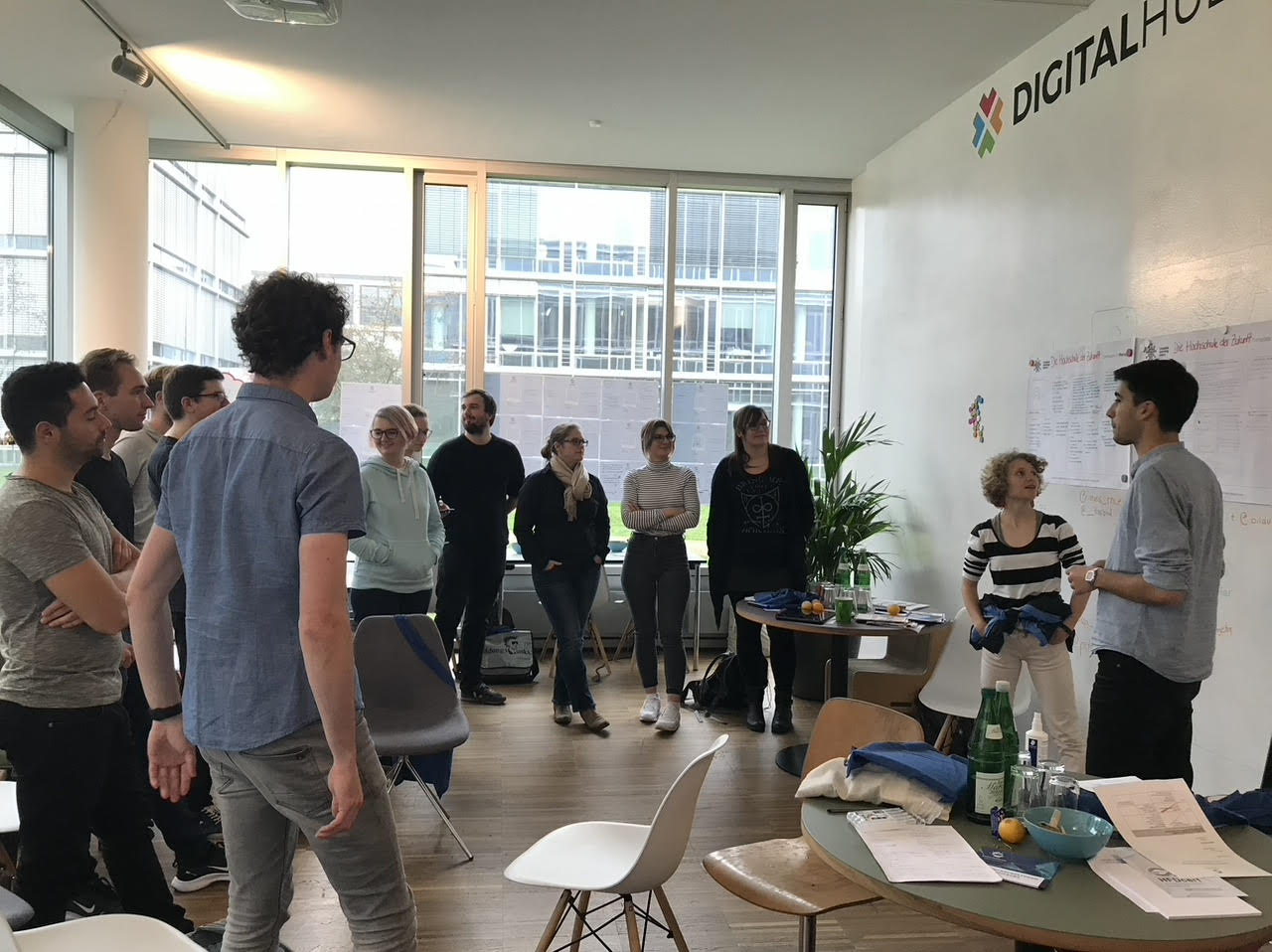
The project University 4.0 will highlight the facets of a sustainable campus, agile governance and a modern curriculum. Campus 4.0 will focus on lecture recordings, the design and equipment of learning spaces in the future, and digital tools for instant feedback to*university teachers*. Within the field of management and administration, the focus will be on digital university elections, student information officers and legal issues relating to digital teaching. Furthermore, the project team plans to deal with digital examinations and online offerings as a supplement or replacement to classroom teaching. The focus in these three aspects is on student participation within a university, because we are convinced that only with the innovative perspective of the students can a permanently attractive educational institution be created. University management should no longer perceive students as educational consumers* but should work together with us to advance teaching, research and organisation.
Finally, a third group from our Zukunfts-AG will deal with social aspects of digitisation in higher education in the project Chancengerechtigkeit. For example, it is planned to use an online solution to make it easier for first-generation students to enter university. A mentoring programme is also possible in this context. In addition, barrier-free and flexible studies are to form a focal point and how digital tools can help to make learning and studying more accessible for students with disabilities or illnesses, among others. The exchange with student secretariats in Germany is a suitable starting point for this.
Let’s go!
We look back on our kick-off weekend full of zest for action and look forward to starting the implementation of our ideas. We want to continue to develop the agenda we have set ourselves and adapt it to new conditions. To this end, we use both the monthly team calls and the three other face-to-face meetings. We want to work intensively with the HFD community from within the working group and also involve many new players* outside the university forum. We will keep you up to date!

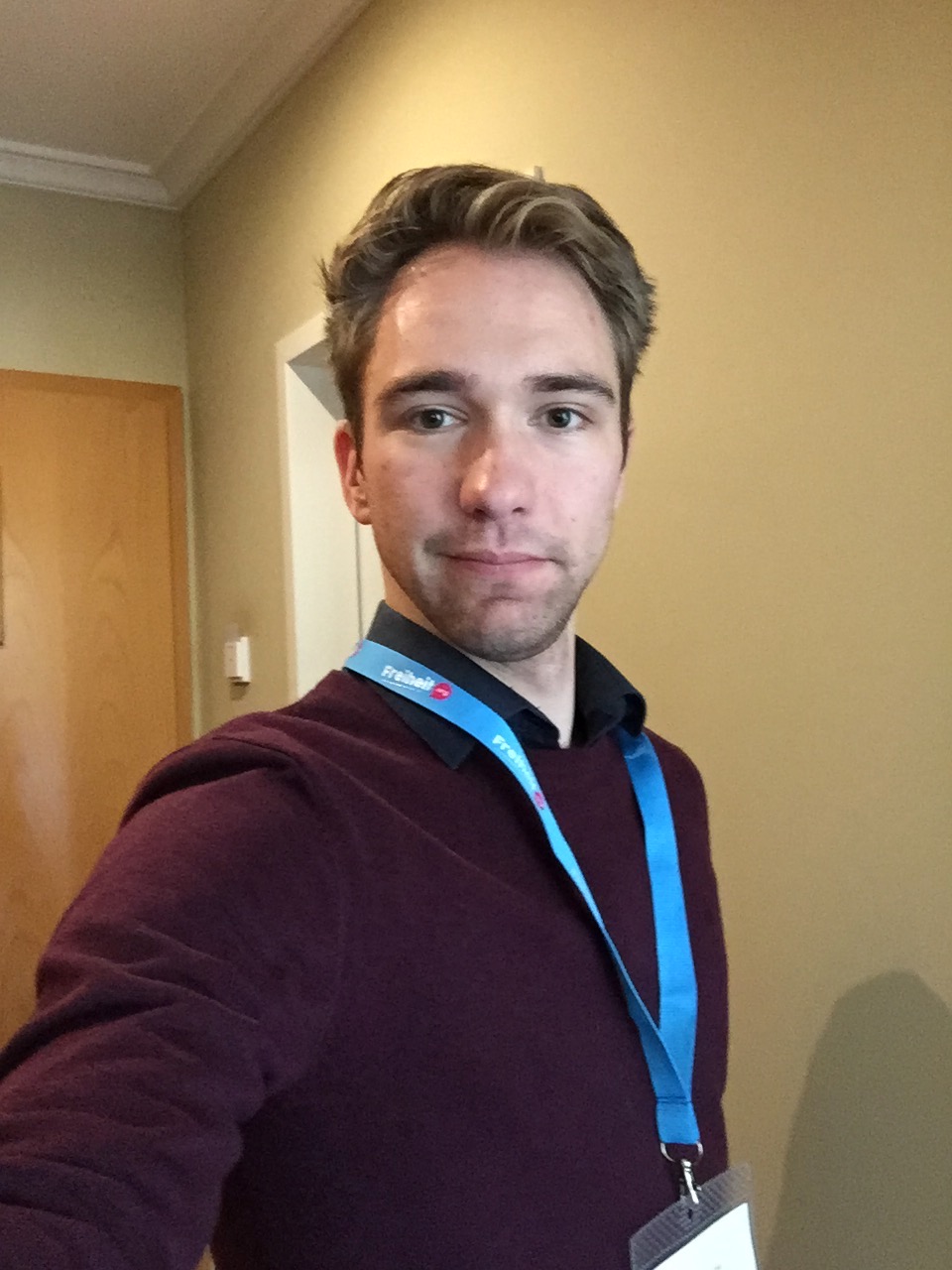
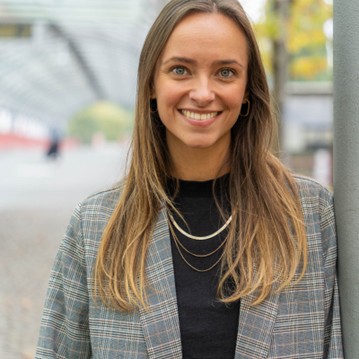 Kim Althoff
Kim Althoff 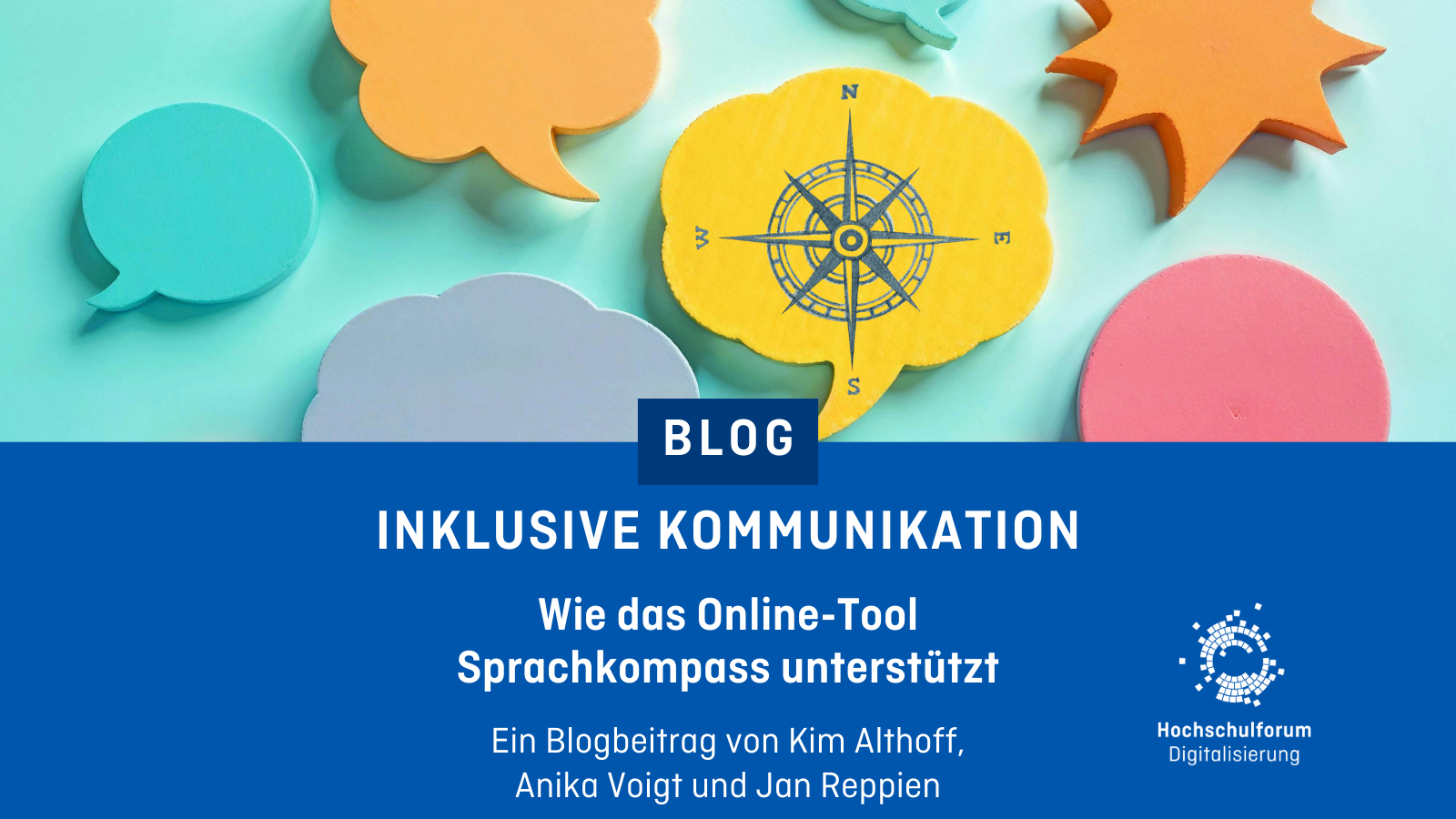
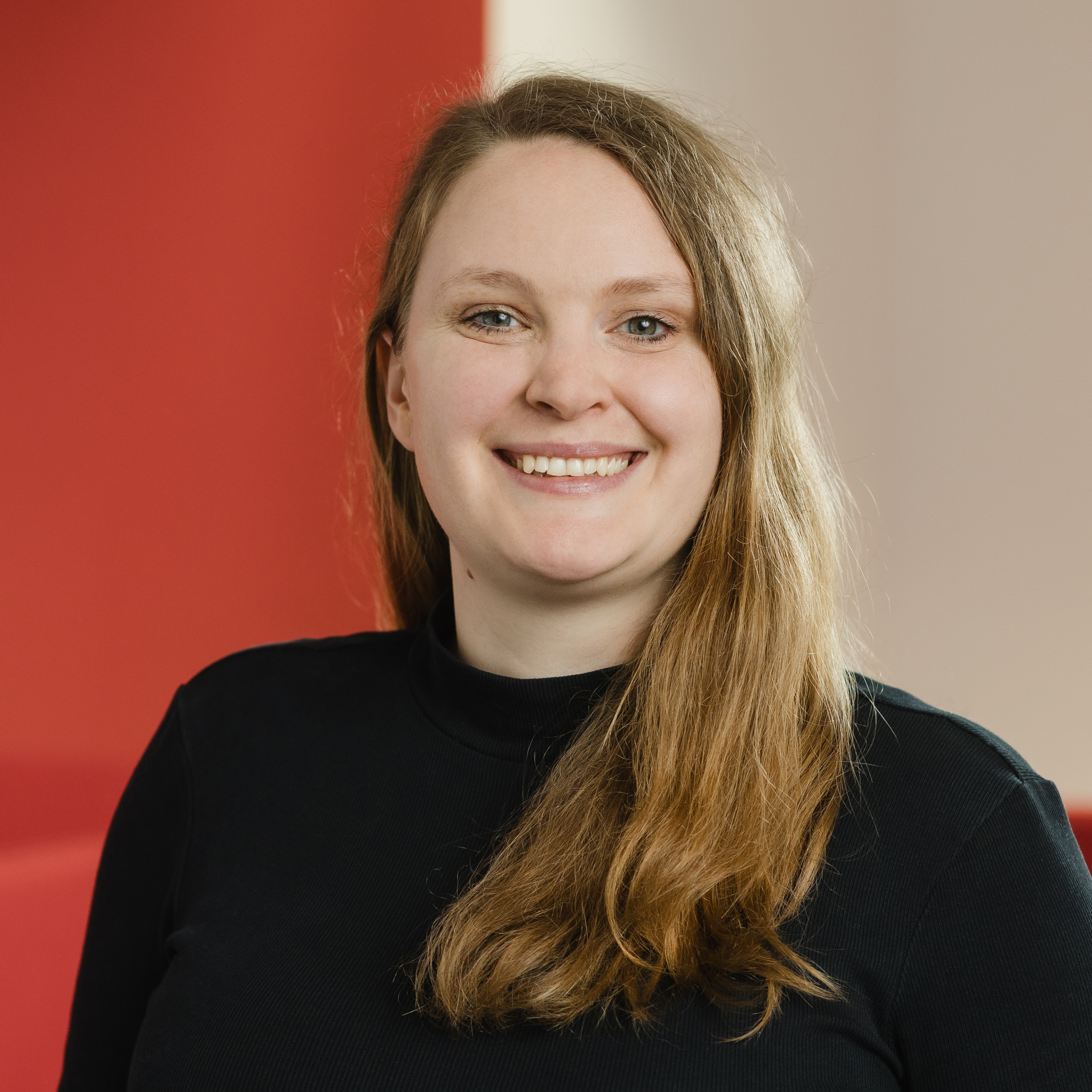 Theresa Sommer
Theresa Sommer 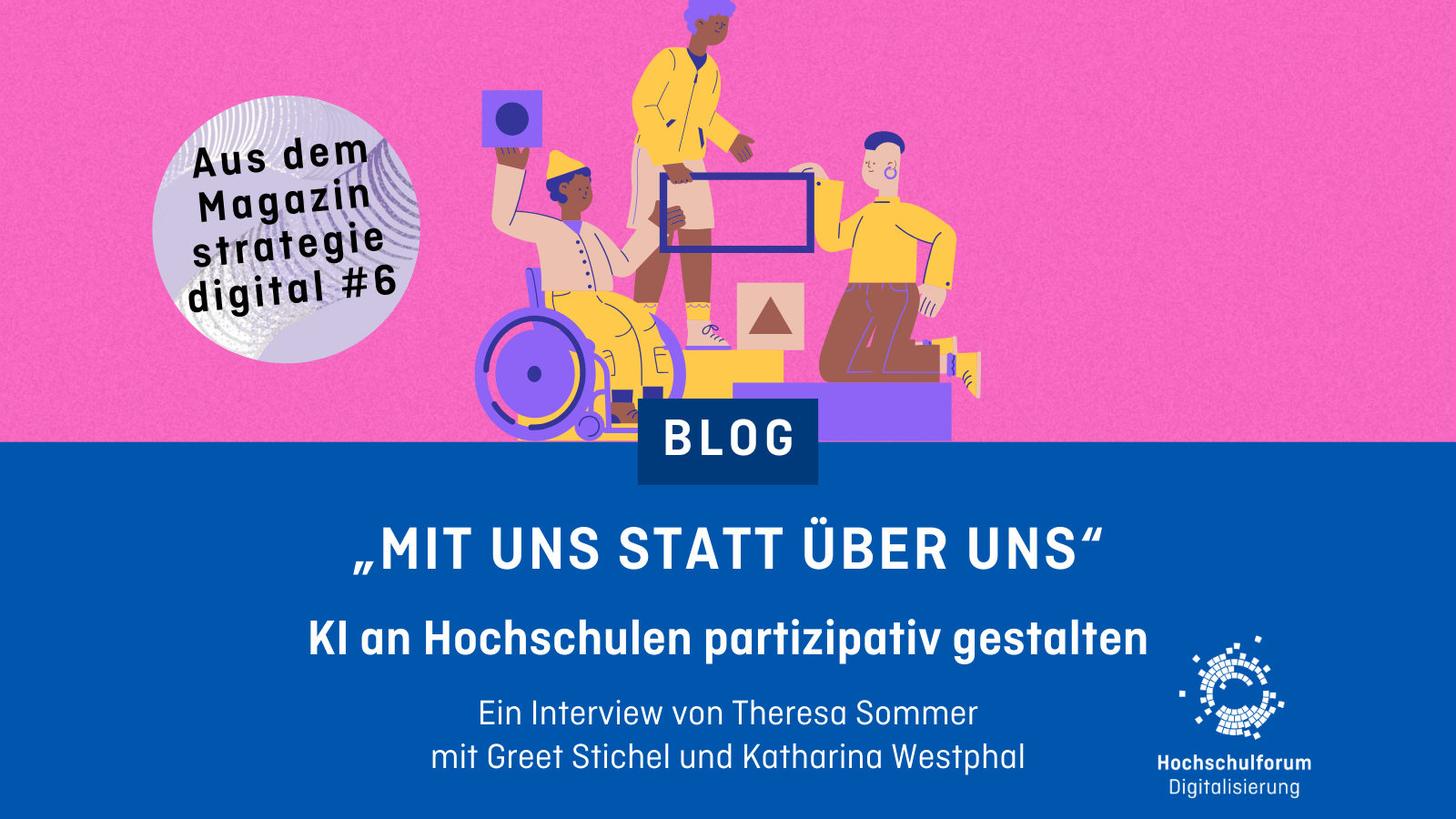
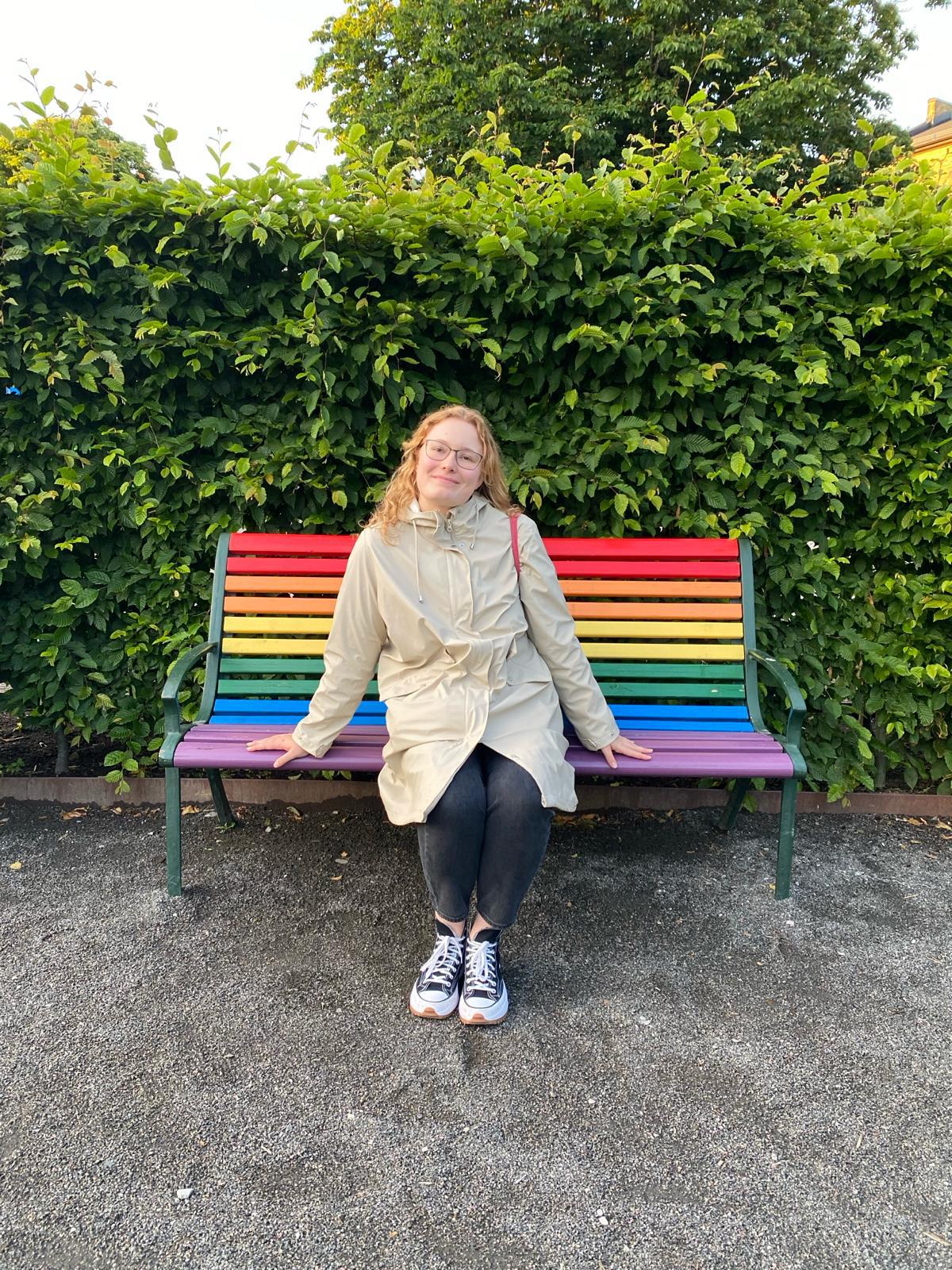 Inga Gostmann
Inga Gostmann 